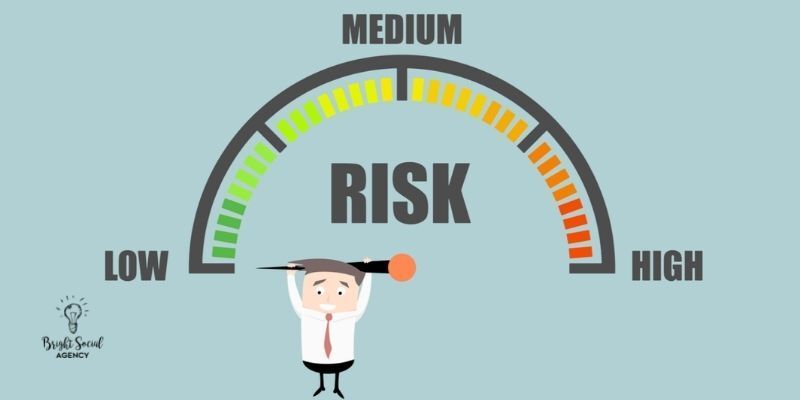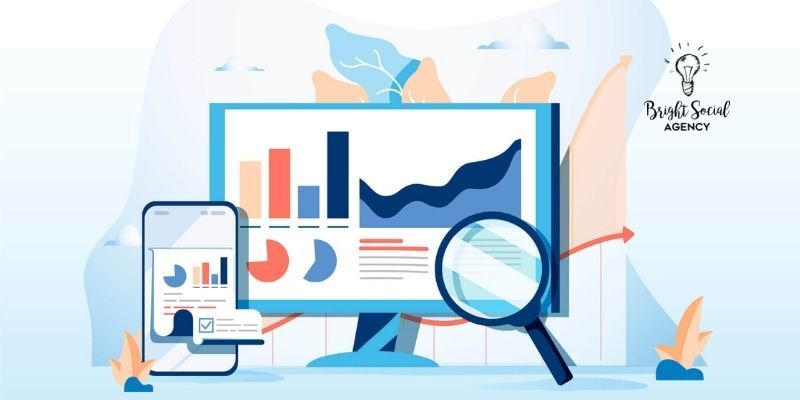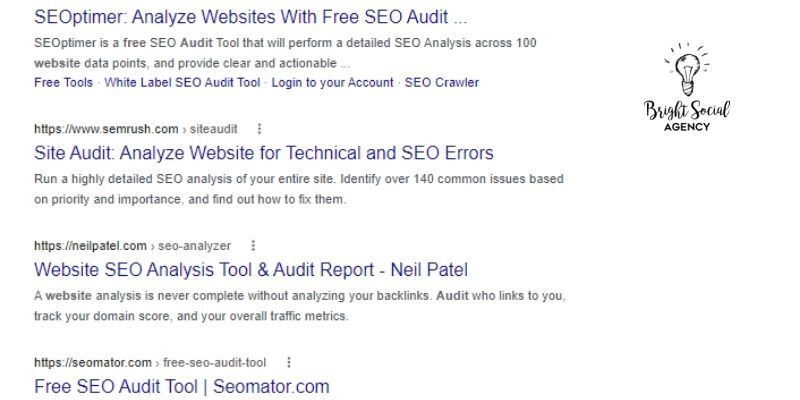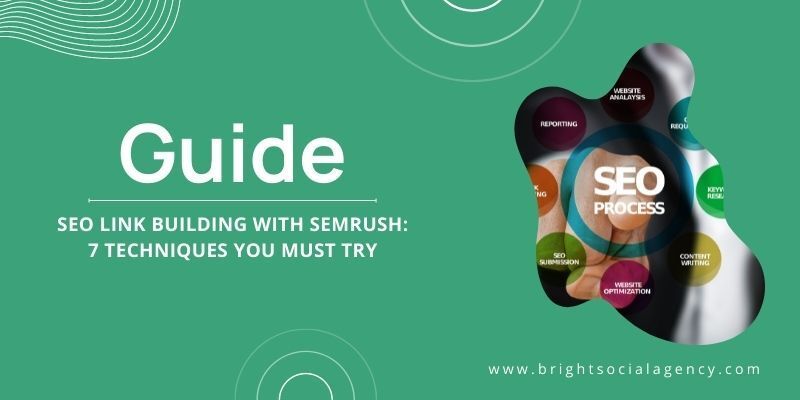The 5 Reasons Why You Need a Website Audit
Everyone knows How a website can improve your business. You've probably heard of many big brand names who use it as a marketing tool to grow their business in a very short time.
A website SEO audit is critical for uncovering issues and opportunities. An SEO audit can determine how well a site performs from an SEO perspective, establish benchmarks for comparison, and provide recommendations for action. A professional SEO audit will allow you to identify and fix any SEO issues your website might be experiencing and help improve your site's performance.
In this post, we will let you know 5 key reasons you need to audit your website.
The Importance of Website Audit

Website audits are a crucial part of the SEO process. You need to know where your site is lacking in order to make improvements. If you don't know what's wrong with your website, how can you fix it?
The importance of website audits can't be overstated. The main goal of a website audit is to find out what needs fixing and why. By identifying these issues and fixing them, you can improve the overall performance of your website and increase revenue.
Website audits provide webmasters with a complete and detailed analysis of their sites' health, performance, and speed.
Different Types Of Website SEO Audits

A website audit is a systematic examination of a website's strengths and weaknesses in order to determine its potential for increased search engine visibility and user-friendliness.
But it's not always necessary to perform a full website audit; below are some of the most common types of audits and when you may need one.
- Technical Audit
Good content and links may help your site rank, but if your site has technical problems, all that effort could be for nothing. Technical audits ensure that all website pages meet the best practices for site visibility, ensuring that all pages are easily viewable and indexed by search engines.
- SEO Audit
An SEO(Search Engine Optimization) audit is a complete evaluation of your website's marketing potential. Its results can include findings on keyword use, link profiles, traffic patterns, and goal conversions. An SEO audit can also analyze metadata and image and video optimization. Auditing the technical aspects of a website will help you better understand its strengths and weaknesses.
- Content Audit
Content audits are useful not just as a part of an SEO audit but also as standalone review tools that can provide insights into what messaging and tone of voice is converting with your audience.
Other key areas you should focus on include a user experience audit, a backlink audit, code/markup audit, social media audit, conversion rate optimization audit (CRO), competitor analysis, or Google Analytics audit.
5 Reasons Why Do I Need a Website Audit?

When it comes to your website, there are many different ways to look at it.
A website audit is a good way to measure the health of your online presence. It can also be used as a tool for identifying areas of improvement and areas that need attention. This can be done by both the client and their developer, but it’s better to have an external person look at your site.
Here are five reasons why it’s a good idea:
1. Your Audience Can’t Navigate Your Site Properly

If a website is all you see all day long, you become accustomed to its navigation and design. You may overlook any problems a user may have with either.
Some of the common features of hard-to-navigate websites include:
- Too many items in the navigation bar: Instead of listing all your services in the top menu, try organizing them in dropdowns and keeping only the most important links in your main menu.
- Overlinking: To make your website easily accessible, users should be able to reach the desired page within 3 clicks. Search engines also have an easier time crawling pages that are linked together more frequently.
- Every page of your site should have a visible way to return to the homepage.
- The homepage is cluttered with a lot of unnecessary information that distracts the reader from useful content.
- Hard to contact you? Include a clickable phone number on your mobile site, an exact address, and an email address.
User testing is one of the crucial parts of your website audit, ensuring your site is user-friendly. It generally involves user recording their windows and fulfilling specific "jobs" on your site and feeding back on the process.
2. Your Site Is Not Properly Optimized

There is a wide range of factors that can cause a website to rank poorly in search engines, which can be uncovered and rectified by a website audit. These include:
- Areas of Content Optimization: If your content is thin, useless, or outdated, you will need to update it, redirect it or remove it.
- Images Not Properly Tagged: The text that appears in the image is what search engines use to determine what the image is.
- HTTP / HTTPS: Identifying and correcting any mixed content issues on a website
- Meta Issues: Make sure that each page has its own unique and relevant metadata.
- Headers: Ensuring that H1's, H2's, and H3's are used logically throughout the site.
- Mobile Responsiveness: It's important to ensure your site is mobile-friendly because mobile traffic now outnumbers desktop traffic.
- URL Structures: Ensure all your website pages have proper URL structures.
- Indexability: Ensure that all pages relevant to your website are indexable, and block those that do not need to be indexed.
- Broken Links: Redirecting and rectifying both external and internal 404's will be necessary to make your website more efficient.
3. Your Site Is At Risk Of Penalization From Search Engines

Some established websites may have used black-hat SEO tactics in the past. Link farming, keyword stuffing, cloaking, and similar tactics may have been used by SEO companies working with these sites.
These strategies may have helped websites increase rankings and traffic at the time, but now that search engines' algorithms are more intelligent, those same websites may now be penalized by them.
A website audit can identify and correct anything that can lead to a penalty or rectify the cause of the penalty if one is already in place.
4. Your Website Is Taking Too Much Time To Load

People have short attention spans, so if your website takes longer than five seconds to load, you'll probably see a higher bounce rate, lower pages per session, and a higher cart abandonment rate on e-commerce sites.
According to Google's own research, page load times of 1-3 seconds cause bounce rates to increase by 32% if they reach 6 seconds, the bounce rate increases by 106%.
Additionally, Google has stated that website speed is a ranking factor, meaning that websites that take longer to load than others could find themselves being pushed down in the SERPs.
Using Google's free Page Speed Tool, you can get immediate insights into your website's current level of optimization.
Google will soon consider a new set of metrics called Core Web Vitals, which relate to speed, responsiveness, and visual stability.
Common Reasons for Slow Loading Speed
Here are some common reasons for slow website page loading speed:
- Un-optimized Images: Images play an important role in user experience, but if they are not optimized, they can affect your site’s performance. If you are using Unoptimized images, it will increase the load time of your website pages. It is recommended to use tools like ImageOptim or Google’s WebPagetest to compress your images before uploading them to your site.
- Data-heavy Pages: Some pages contain too much data, which increases the load time of these pages and makes them slow. Try removing unnecessary scripts from these pages and use lightweight plugins instead of heavy ones like jQuery or JavaScript libraries.
- Inefficient Server Configuration: If your server configuration is inefficient, then it will take more time to process each request and respond with content to the browser, resulting in a slower page loading time for users visiting your website.
- Too many plugins installed on your website: The more plugins you have installed on your WordPress site, the slower it will be. So if you have a lot of plugins on your WordPress site, try to find out which one is causing this problem and uninstall them from your site.
5. You Need To Analyze Your Competitors

When you know what your competitors are doing online, you can carry out a better strategy to stay ahead of the pack.
Identifying your main competitors and auditing their content, social activities, targeted keywords, backlinks, and organic / paid search activity will help you learn more about your industry.
Analyzing your competitors can help you gauge your success compared to theirs, allowing you to alter and improve your online strategy if necessary.
How Often Should I Have a Website Audit?

Scheduled and unannounced audits can help companies identify and correct any major issues that are likely to cause trouble in the future.
We suggest a bi-annual audit for larger websites and an annual audit for smaller ones. A website audit should be carried out on your site after it has gone live to rectify immediate problems and increase the speed at which search engines index it.
Why Pay For a Website Audit When You Can Get One Online For Free?
You may know that a quick search for ‘free website audit’ leads to various free audit tools. However, these are less effective than a proper audit.
The budding mechanic inside you will do some research once a warning light illuminates on your dashboard, but you still need to take the car to a trained mechanic for repairs.

Additionally, should the warning light on your dashboard malfunction or show a general warning for what could be a number of different issues?
Therefore, online site audits are free for the most part and give a reasonably accurate high-level insight into your website’s performance. However, they can be misleading or confusing to somebody without expert guidance to properly rectify any issues they throw up.
Need A Hand?
Website audits are essential for ensuring the success of any business, but they take time to execute and require expert guidance.
If you think it’s time for your website to have an MOT, or if you’ve noticed a fall in traffic and rankings, we can help. We understand that no two site audits are identical, so we’ll tailor ours to suit your goals.
Our comprehensive SEO audit includes 100+ checks looking at factors including technical analysis, site architecture, security, image optimization, mobile optimization, on-page optimization, and more.
Please contact us using the form to discuss your business’s SEO needs and how we can help.
Contact Us
This post may contain affiliate links, which means that we may receive a commission if you make a purchase using these links.









